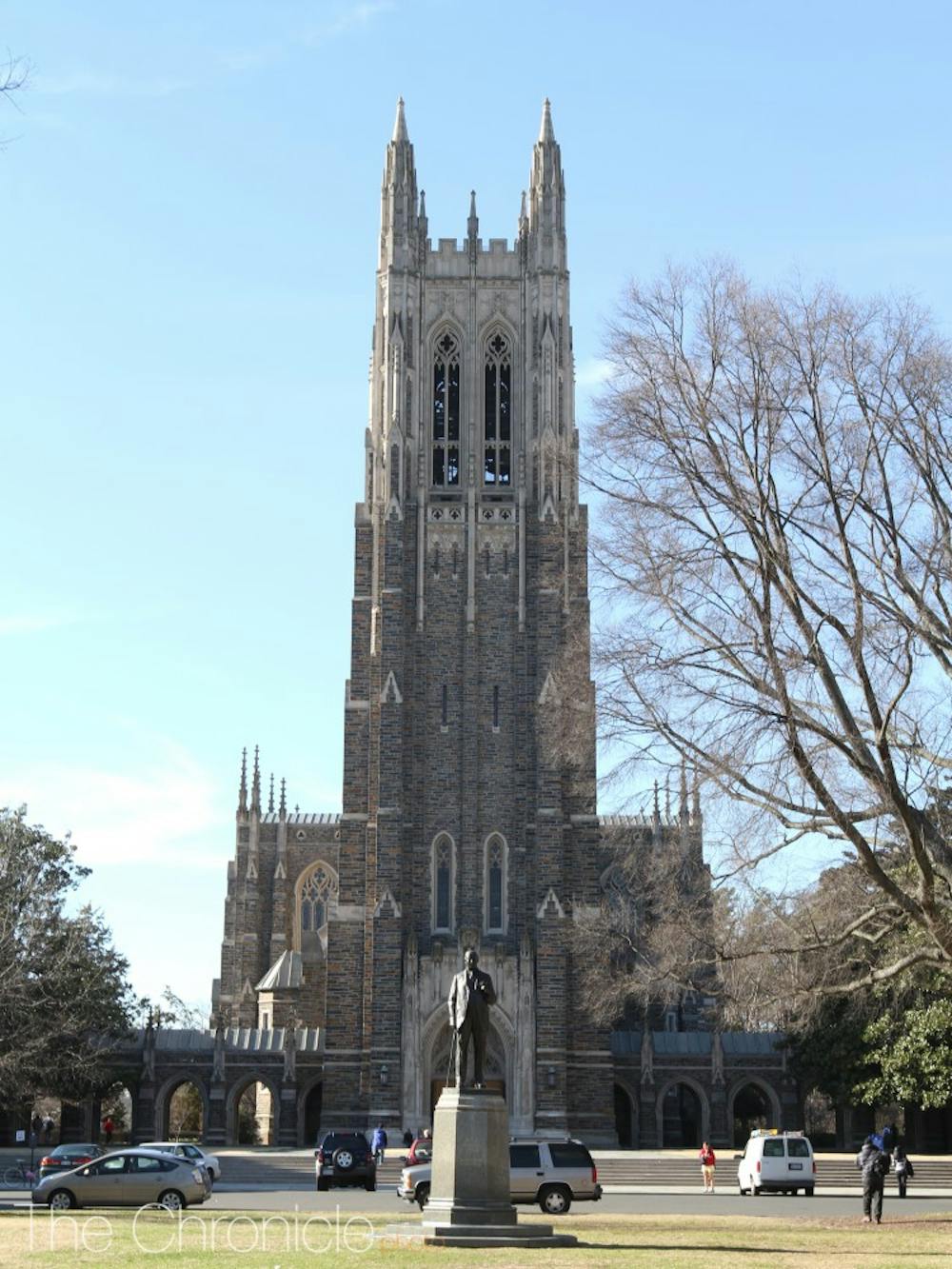Although there have yet to be any reported cases of the coronavirus at Duke, the University is readying for possible student self-isolation in light of student travel to areas at high risk of exposure to the coronavirus.
Any student, faculty or staff who travels to Level 3 risk countries—China, Iran, Italy and South Korea—or Level 2—Japan—will be subject to a “mandatory 14-day self-quarantine” before they can come back to campus, according to an email sent to the Duke community Thursday afternoon. Duke is not restricting domestic travel yet, but cautioned against traveling to large conferences or events.
The email also mentioned that if anyone returns to Duke with a fever, cough or difficulty breathing, they should contact Student Health or Employee Occupational Health and Wellness before coming back to campus.
The email confirmed that there are currently no COVID-19 patients at Duke University Health System. DUHS has established a “command center” to implement protocols and maintain protective equipment in case the health system has to care for a COVID-19 patient.
In the case of students currently living on campus becoming affected, Duke will require they be transferred to East House on East Campus, which has been “equipped to accommodate and support students under the direction of Duke Student Health,” according to the email. Students living off campus will be required to self-isolate in their houses or apartments.
“It might be that students on campus this semester can easily get home by car if they are advised to self-isolate,” wrote Mary Pat McMahon, vice provost/vice president for student affairs, and Vice President of Administration Kyle Cavanaugh in an email to The Chronicle Wednesday night. “In cases like that, we would support a student's decision to go home.”
The University has sped up renovations at East House, which was slated to be vacant for the 2019-2020 academic year, which are “near completion,” McMahon and Cavanaugh wrote Wednesday.
The academic calendar remains unchanged, but the Thursday afternoon email explained that the University is “monitoring the situation and will respond should that become necessary.”
“Over the next week, we will be communicating with deans, department chairs and faculty about how best they can prepare in advance should it become advisable for Duke to end on-campus classes sooner than indicated by the Duke calendar. We hope this will not be necessary but want to be prepared,” the email stated.
Duke, Student Health Services and Student Affairs offices are planning their support for students who may be in self-isolation, wrote John Vaughn, director of Student Health Services, in an email to The Chronicle Thursday evening.
Student Health will provide thermometers and masks, monitor student symptoms, answer student questions and keep updated with the Infection Prevention office, he added. DukeReach will arrange “any academic or logistical needs,” while Counseling and Psychological Services will be available for emotional and mental health support.
Emergency Services confirmed they will timely provide supplies and information, and academic deans and faculty are preparing to adapt academic work if needed. Students in self-isolation will also have the ability to receive food delivery thanks to Duke Dining planning.
“The list goes on and on; I think it’s fair to say that every office is reviewing how their work might be impacted by the Coronavirus situation and how they might adjust to maximize the support given to students,” Vaughn wrote.
With Friday as the last day of classes before spring break, the email also warned students of potential travel risks.
“If you are planning to leave campus for Spring Break, we again strongly encourage students, faculty and staff to reconsider any nonessential personal international travel, particularly to areas that are experiencing outbreaks of COVID-19,” the email stated.
The Thursday email comes after McMahon sent an email to the Duke community Feb. 29 highly encouraging students who were planning to travel internationally over spring break to reconsider their trips. The University is using the Duke Travel Registry and information on Duke-sponsored trips to keep track of Duke student travel.
Gary Bennett, vice provost for undergraduate education, has specifically been coordinating with faculty, deans and academic leadership to devise a plan for students who might not be able to attend class or lab if they’re in self-isolation, McMahon and Cavanaugh added in another email.
A team from the University and Duke University Health System has been working since mid-January to address various possible impacts of COVID-19, McMahon and Cavanaugh explained. Emergency Planning, Facilities, Student Health, Housing and Residential Life, Duke Dining and DukeReach have all been collaborating protocols in the event student support is needed.
Editor's Note: This article was updated March 5 at 7:25 p.m. with comments from John Vaughn.
Get The Chronicle straight to your inbox
Sign up for our weekly newsletter. Cancel at any time.

Jake Satisky was the Editor-in-Chief for Volume 115 of The Chronicle.

Stefanie Pousoulides is The Chronicle's Investigations Editor. A senior from Akron, Ohio, Stefanie is double majoring in political science and international comparative studies and serves as a Senior Editor of The Muse Magazine, Duke's feminist magazine. She is also a former co-Editor-in-Chief of The Muse Magazine and a former reporting intern at PolitiFact in Washington, D.C.

